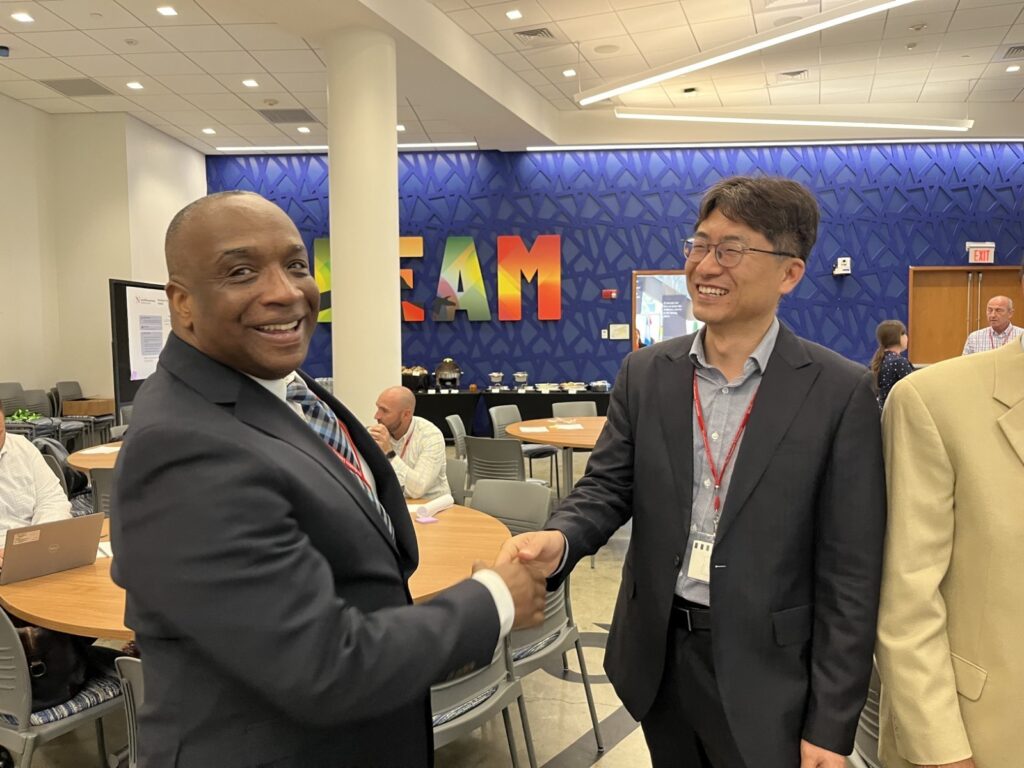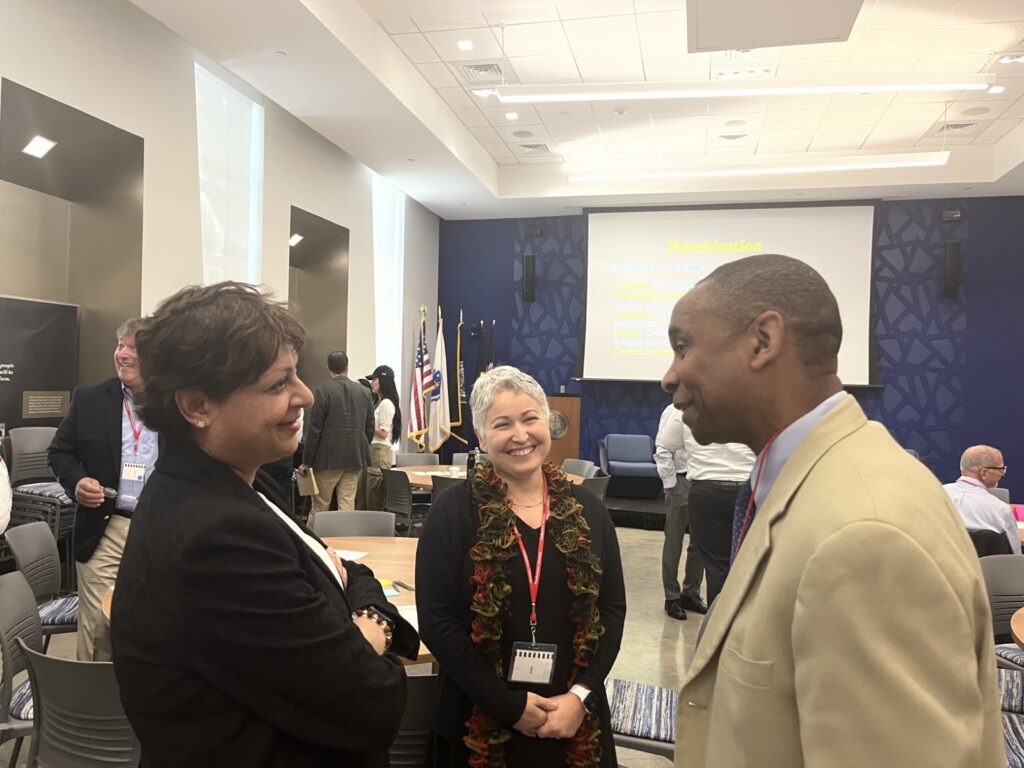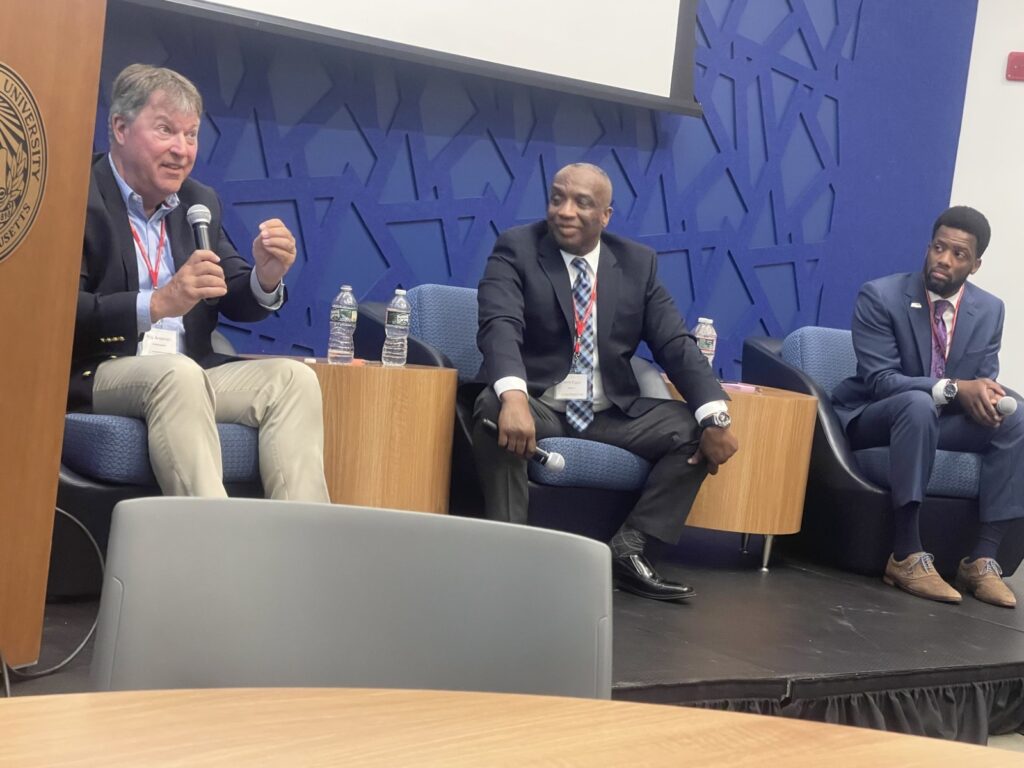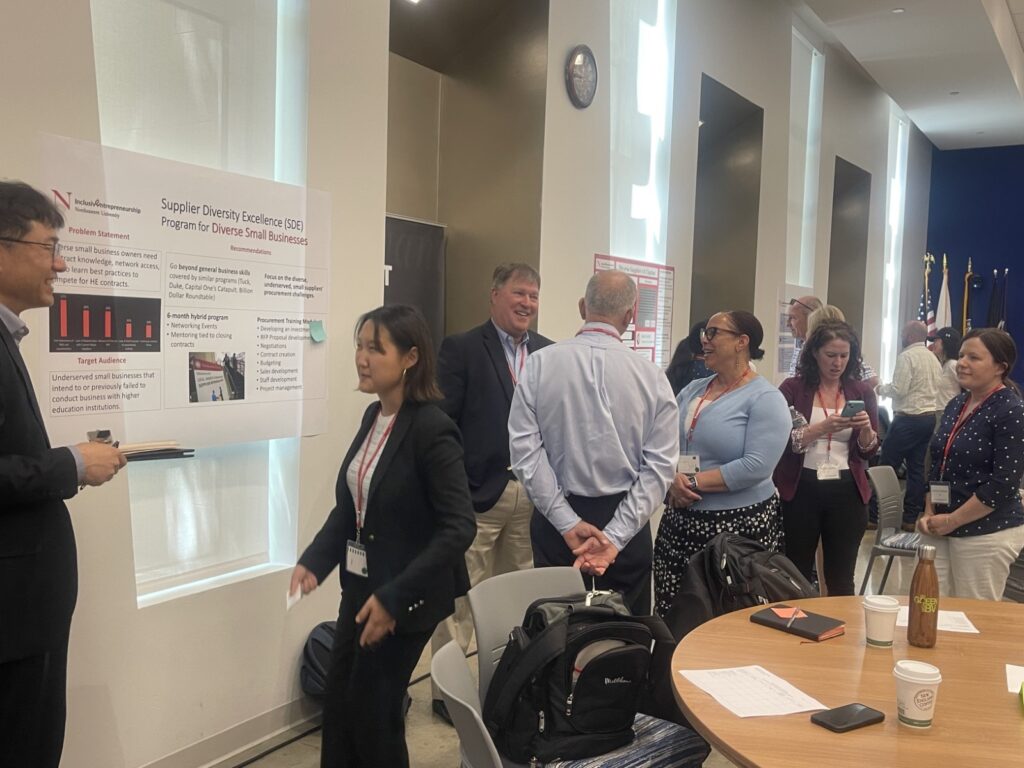Discover How Three Dedicated CPS Professors Empower Underrepresented Entrepreneurs
In 2021, visionary CPS professors Francesca Grippa, Youngbok Ryu, and Carl Zangerl leaped at the opportunity to further the College’s founding principles: meeting Learners where they are and going beyond the classroom to deliver opportunities.
After the country found itself in a second civil rights wave in 2020, politicians and public leaders scrambled to produce fiscal resources to eliminate race-based discrimination and level the economic playing field with a fervor not seen in over 60 years. Northeastern University’s College of Professional Studies (CPS), a legacy champion of Diversity, Equity, and Inclusion well before it was trending, found itself in a position to receive external support for something it had always upheld.
Grippa, Zangerl, and Ryu were well-positioned and eager to take full advantage. Through their individual experiences teaching Learners and seeing the challenges they faced as they applied education to improve their lives and communities, the Professors each had their own understanding of where additional resource provision would prove beneficial.

The US Economic Development Administration (EDA) and the Ewing Marion Kauffman Foundation both opened bids for a five-year and three-year grant opportunity to support diverse small businesses and after securing funding in 2021, thanks to these Professor’s passion for their work, The CPS Lab for Inclusive Entrepreneurship was born. Its sworn mission of ‘contributing to economic development and community resilience by promoting inclusive, equitable innovation and entrepreneurship and assisting small businesses in addressing their technical and managerial challenges’ laid the groundwork for a three-pronged service platform for small businesses; it included: the Inclusive Entrepreneur Fellowship Program, Technical and Managerial Assistance and Procurement Research on Supplier Diversity in higher education.
About the Lab:
The Lab assists both historically disadvantaged entrepreneurs whose business models are centered on giving back to their communities and businesses with strong missions to help disadvantaged communities. It largely provides small, minority-owned (Black, Brown, women, LGBTQ+, Indigenous) businesses in Maine, Massachusetts, and Rhode Island with resources they can use that to improve their business operations, evolve their business models, increase market reach, or tackle other challenges, and ultimately improve their communities.

We asked how the Lab fits with CPS’s overall offering. Francesa Grippa, Executive Director of the Lab, said with her soft and rich Italian accent [she hails from Lecce, Italy], “Because we give opportunities to improve lives through learning; because we engage Learners in real business challenges to provide that experiential aspect; and because we care about inclusive prosperity beyond the classroom, we want to genuinely give Learners the tools to be successful, not just dole out diplomas and send them on their way. For us, going outside of the program model and reaching outside the classroom to support these Entrepreneurs is a perfect fit and exactly where we need to be.”
Inclusive Entrepreneur Fellowship Program & Technical/Managerial Assistance
The Fellowship Program hosts annual cohorts of small business owners – some of whom are existing CPS Learners or recent Alumni – who receive support, mentorship, and training to grow their venture, learn how to respond to RFPs, or negotiate contracts. Fellows have the opportunity to tap into Northeastern University’s vast entrepreneurial ecosystem including research centers and institutes, start-up labs, and potential funding resources. Qualifying applicants have to be in business for at least three years. The program is a la carte, not curriculum based, and true to the CPS mission of fostering the development of lifetime learners, focused on meeting Fellows where they’re at. Now in its second year, the current cohort is scheduled to graduate this September.


An entrepreneur’s experience
Fellow Alumni Gayl Crump Swaby has experienced first-hand what the Lab can do. She is president of the mental-health provider New Generation Consultants and as an experienced counselor with a master’s degree in social work from Boston University and an Ed.D. in child and youth studies from Nova Southeastern University, her expertise combines rigorous scholarship with years of real-world experience. Particularly in her work with children, Swaby says, “My purpose has become my passion.”
As an entrepreneur, however, she felt she still had a lot to learn.
“The business side of running a business was not something that was taught in school,” she says. “I didn’t have a lot of those skills and I wanted to get a deeper dive into looking at financials and business models. How do I finance it? Anything and everything related to managing a small business.”
At the Lab for Inclusive Entrepreneurship, she found exactly what she was looking for. Over the course of her fellowship, Swaby gained critical knowledge of negotiating contracts, setting fees, managing expenses, and working with subcontractors—all knowledge and skills she could apply directly and immediately to her professional life. She also learned strategies for increasing sales and practical techniques for boosting her leadership skills. Along the way, she earned the badges that now adorn her LinkedIn profile: Building Blocks of Strategy, The Finance of Funding, and Commercializing Your New Venture.
“The program helped me to really begin to scale my business up and think about what it means to be a small business owner,” Swaby says, “especially being a Woman of Color—and how difficult it is just getting access to resources and being able to break through barriers. The fellowship program helped me to think about not only not letting those barriers get in the way but the ways in which I can remove those barriers or get the support to remove those barriers.”
Supplier Diversity
The research arm of the Lab is a persistent powerhouse; its work is close to the heart of Youngbok Ryu, who leads the effort on Supplier Diversity. Census analysis projects that in 2045, the US will have a complete demographic shift, placing people who identify as white in the minority – this affects all sectors. “The Higher Ed sector represents billions of dollars of spending each year. Our hope is that Supplier Diversity can be one way to close a significant socio-economic gap,” Ryu says.
The research team has so far published two impactful reports on the subject.
The goal is to expand the Supplier Diversity research beyond New England and really engage not just owners of vendor companies, but also bring in the Procurement professionals who have the authority to implement institutional changes needed to remove internal barriers faced by smaller players, the same businesses that are most likely owned by Black, Brown or other minoritized people. The work in this area has the potential to be game-changing for the Higher Education sector and create an effective blueprint for how to implement this change.
Grippa notes that faculty across Northeastern have begun to recognize the program’s effects, and she is hopeful that momentum will continue to build for the Lab and the entrepreneurs and students it serves. She said, “Our efforts have been contagious, and we have been able to forge new alliances and collaborations that will help us to achieve even greater success in the future.”
Resources:
Learn more about the Lab for Inclusive Entrepreneurship: https://nl4ie.sites.northeastern.edu/ie2-fellowship/
Read the Supplier Diversity reports: https://nl4ie.sites.northeastern.edu/supplier-diversity/
Submit a request to the Lab for Business Assistance: https://nl4ie.sites.northeastern.edu/business-assistance/
Newsworthy mentions:
LAB on Boston Chamber of Commerce’s website: https://bostonchamber.com/thought-leadership/growing-into-larger-contracts-northeastern-and-drb/
Mass. colleges fall short of the goal to expand minority contracting: https://www.wgbh.org/news/education/2022/06/06/mass-colleges-fall-short-of-goal-to-expand-minority-contracting